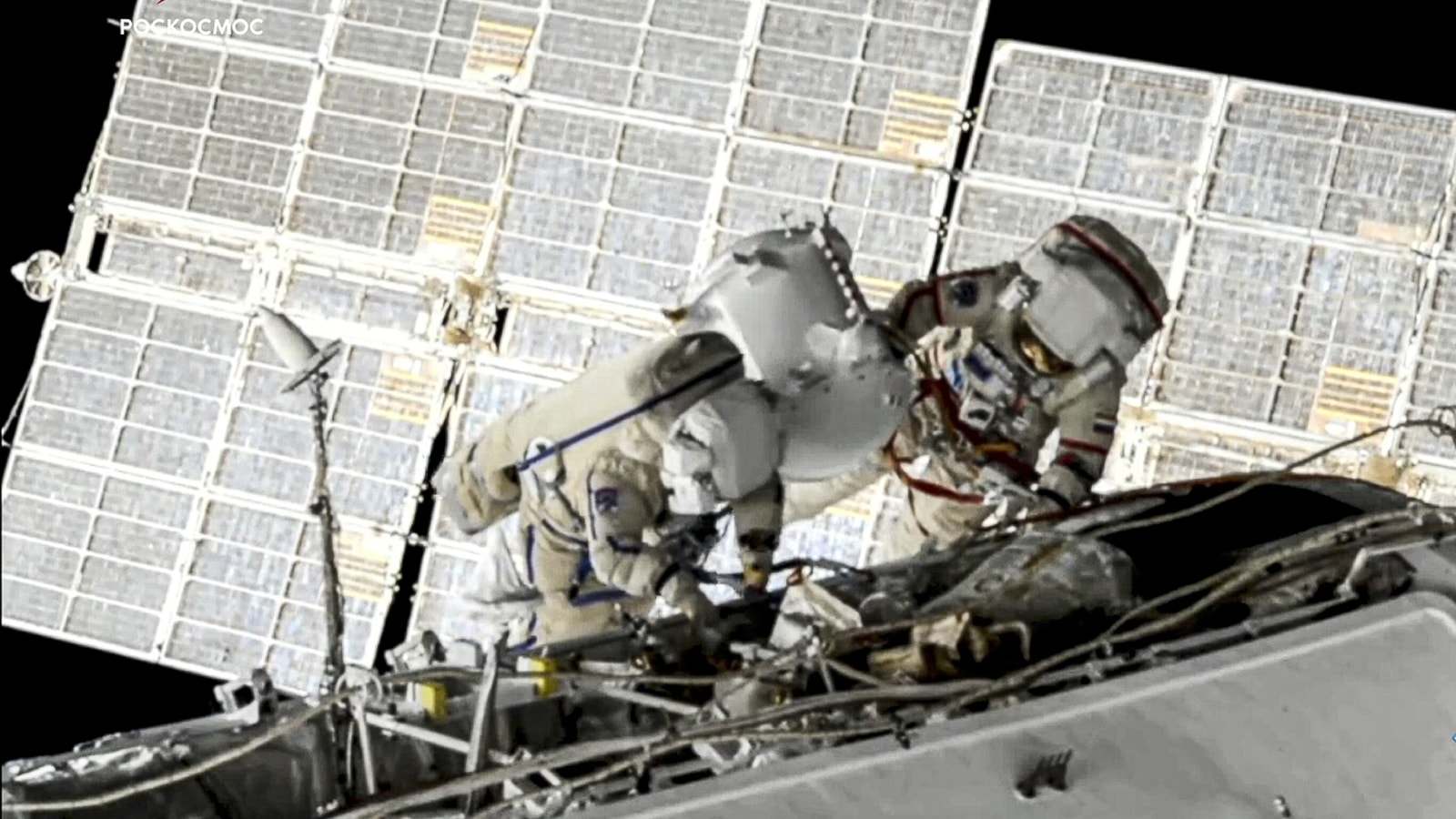Russia indicators area station pullout; NASA says it isn't official but | World News
 Russia indicators area station pullout; NASA says it isn't official but | World News
[ad_1]
Russia indicators area station pullout; NASA says it isn't official but | World News
[ad_1]
Russia's new area chief mentioned on Tuesday his nation plans to withdraw from the Worldwide House Station after 2024, although a senior NASA official mentioned Moscow has not communicated its intent to drag out of the two-decade-old orbital partnership with america.
Whereas heightened tensions between Moscow and Washington over Russia's invasion of Ukraine for months have raised doubts about future American-Russian area cooperation, the announcement by Yuri Borisov, the newly appointed director-general of Russia's area company Roscosmos, got here as a shock.
The 2 former Chilly Struggle adversaries signed a crew trade settlement lower than two weeks in the past permitting U.S. astronauts and Russian cosmonauts to share flights on one another's spacecraft to and from Worldwide House Station (ISS) sooner or later.
The U.S. area company has mentioned it plans to maintain the ISS in operation by means of 2030.
"After all, we are going to fulfill all our obligations to our companions, however the determination about withdrawing from the station after 2024 has been made," Borisov instructed Russian President Vladimir Putin on Tuesday.
Robyn Gatens, NASA's ISS director, mentioned her Russian counterparts haven't communicated any such intent as required by the intergovernmental settlement on the orbiting analysis platform.
"Nothing official but," Gatens mentioned in an interview at an ISS convention in Washington. "We actually simply noticed that as effectively. We've not gotten something official."
U.S. State Division spokesperson Ned Worth additionally mentioned Russia's announcement was surprising, calling it an "unlucky improvement."
Launched in 1998, the ISS has been repeatedly occupied since November 2000 whereas operated by an American-Russian-led partnership that additionally contains Canada, Japan and 11 European international locations.
The area station was born partly from a overseas coverage initiative to enhance American-Russian relations following the collapse of the Soviet Union and the Chilly Struggle hostility that spurred the unique U.S.-Soviet area race.
The ISS association, which has endured quite a few strains over time, has stood as one of many final hyperlinks of civil cooperation as Russia's Feb. 24 invasion of Ukraine despatched relations between Washington and Moscow to a brand new post-Chilly Struggle low.
NASA and Roscosmos had been in talks to increase Russia's ISS participation to 2030. The White Home this yr permitted NASA's plans to proceed working the ISS till then.
NASA officers had beforehand mentioned bilateral cooperation aboard the area station remained intact.
Borisov's remarks on Tuesday adopted a sample much like these of his predecessor, Dmitry Rogozin, who throughout his tenure would sometimes sign an intent to withdraw from the ISS - in distinction with official talks between NASA and Roscosmos.
Requested for clarification on Russia's area station plans, a Roscosmos spokeswoman referred Reuters to Borisov's remarks with out saying whether or not it represented the company's official place.
NASA has known as Russia essential to maintaining the area station working, stressing the technical interdependence of the American and Russian segments of the ISS.
For instance, whereas U.S. gyroscopes present day-to-day management over ISS orientation in area and U.S. photo voltaic arrays increase energy provides to the Russian module, the Russian unit offers the propulsion used to maintain the station in orbit.
The station, spanning the dimensions of a soccer subject, orbits some 250 miles (400 km) above Earth.
Former Russian area chief Rogozin had beforehand mentioned that Russia couldn't agree to increase its ISS position past 2024 until america lifts sanctions on two Russian firms blacklisted for suspected army ties. Putin eliminated Rogozin as area chief on July 15, changing him with Borisov, a former deputy prime minister and deputy protection minister.
[ad_2]




0 comments: